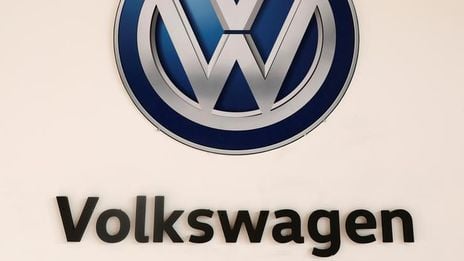WOLFSBURG (dpa-AFX) - Volkswagen 's headquarters, which has recently been underutilized, has been awarded the contract within the group for an additional e-model starting in 2026. As part of the investment planning initially postponed in the fall, the decision has now been made to locate the development and construction of the all-electric compact SUV in Wolfsburg, according to reports from participant circles on Thursday on the fringes of a works meeting. The car is to be roughly the size of today's Tiguan and based on a revised version of the current MEB electric platform ("MEB plus"), announced Daniela Cavallo, head of the works council.
Chancellor Olaf Scholz (SPD) was also invited to the staff meeting. According to sources close to the Group, he also indirectly commented on the controversial new EU emissions standard Euro 7, which is expected to bring about a significant tightening of emissions standards, but which will in some cases require complicated technology and, according to estimates by the auto industry, will make small vehicles in particular more expensive.
Accordingly, Scholz assured that the German government would "not forget the present when looking to the future and will always ensure that realistic solutions are found." In order to continue to drive investment in e-mobility, he said, it is necessary "that we also retain our economic strength as a basis for renewal." Group CEO Oliver Blume also spoke to employees on the subject.
Earlier, the chancellor had toured the Wolfsburg Golf production facility. At Volkswagen's main plant, where the Tiguan, Touran and Seat Tarraco are also manufactured, a lot of work had been lost since the start of the supply crisis with microchips and other electronics. Production capacities could not be used for stretches, and the main plant was far below the targets once agreed.
The new E-SUV is expected to soon secure employment again to a greater extent. The car is seen as a temporary stopgap until the future core model Trinity is ready for launch. The planning for this had been postponed due to problems in software development. Trinity is to have its own systems and be based on a completely new platform (SSP) - but the start-up will probably take until the end of the decade.
Wolfsburg is also being prepared for overflow production of the electric ID.3 from Zwickau. A planned extra factory for the Trinity, on the other hand, could be on the back burner. Alternatively, parts of the main plant could be converted. VW recently emphasized that it is also keeping the option of building a new plant open. A final decision will be made by March.
Cavallo stressed that the industry needs the help of politicians in the difficult transition of the sector. VW has drawn the consequences from the mistakes of the diesel crisis with its previous decisions to expand its e-business. In the transitional period with modernized combustion engines, Wolfsburg "must also be able to show itself again in the medium term in terms of production volume." She called for support in accelerating the expansion of the e-car charging network and more renewable electricity production in Germany - "but also in the next European regulations for our vehicles with combustion engines."
Scholz said Germany would remain a country "where car production plays a central role in our economic activity." Competitive electricity prices are also crucial - not only for the breakthrough of e-mobility, but equally for many other industrial processes, he added. The energy transition will therefore have to pick up speed. On political moves to create incentives for the installation of more charging stations, he said, "We will ignite the pace that is needed to achieve this."/jap/DP/mis





